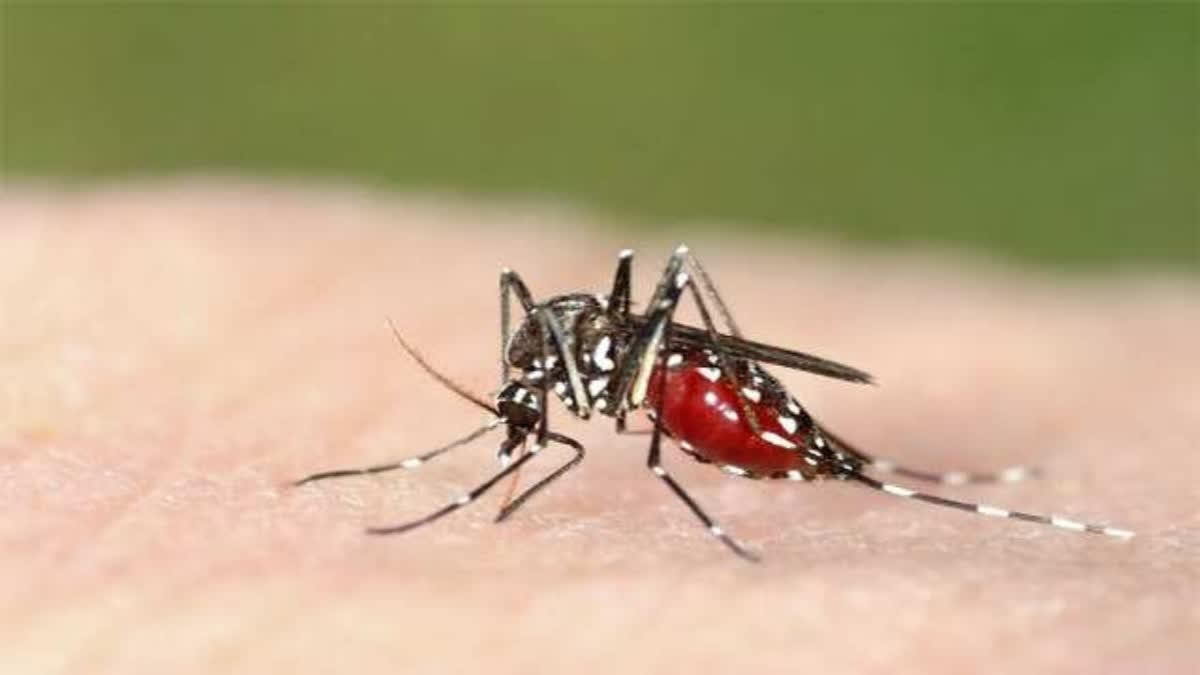New Delhi: Union Health Minister Mansukh Mandaviya on Monday said that India has witnessed an 85.1 per cent decline in malaria cases and an 83.36 per cent decline in deaths during 2015-2022. “India was the only high-burden, high-impact country in South- East Asia region to report a decline in malaria cases in 2020 as compared to 2019. India witnessed an 85.1 per cent decline in malaria cases and an 83.36 per cent decline in deaths during 2015-2022,” said Mandaviya as he virtually addressed the Asia Pacific leaders’ conclave on malaria elimination.
He said malaria is not just a public health issue, but also a social, economic and political challenge that requires the cooperation of all stakeholders. Lauding the vision of Prime Minister Narendra Modi, Mandaviya said that Narendra Modi was among the global leaders, who endorsed the malaria elimination roadmap of the Asia-Pacific leaders alliance at the East Asia Summit in 2015, which galvanized the region in striving to become malaria-free by 2030.
Addressing the significant challenge posed by malaria, particularly to the marginalised and vulnerable communities, Mandaviya added that “rejuvenated political commitment and strengthened technical leadership will play a monumental role in eradicating malaria from the world.” Citing the transformational impact of India’s health initiatives such as Ayushman Bharat Pradhan Mantri Jan Arogya Yojana (AB-PMJAY), Ayushman Bharat Health and Wellness Centres, and Ayushman Bharat Digital Mission as well as the substantial role of its healthcare workers, Mandaviya said, “India is committed to sharing our resources, knowledge and learnings with other countries in our endeavour to eliminate Malaria.”
Also read: Odisha: Scientists at ILS Bhubaneswar develop anti-malarial treatment to reduce mortality
Dr VK Paul, member Niti Aayog (Health) congratulated South Asian and Pacific Region countries on achieving significant decline in malaria cases and stressed the goal to make malaria a history with a focus on working on the most marginalised and vulnerable communities with an inter-sectoral approach.
He highlighted the need for collaboration across borders while embracing the whole-of-government and the whole-of-society approach. “We can't eliminate malaria till we work together across borders. We need to prioritise research and innovation, and encourage behavioural change research. We need to work tremendously in developing a vaccine against malaria in order to have additional arms against Malaria,” Dr Paul said.
Advocating leveraging the use of digital tools for eliminating malaria, Dr Paul stated that “We need to focus on high-burden areas and eliminate this disease with inter-sectoral collaboration, which starts at the village level.” Dr Paul emphasised that urban areas with dense population, migrant population, and areas inhabited by tribal population are some key challenging areas where we need to focus and work together as 'One Team India'.
The programme was attended by Dr Manik Saha, Chief Minister of Tripura, Dr R Lalthamgliana, Minister, Health and Family Welfare Department, Mizoram, Dr VK Paul, Member (Health), NITI Aayog, and Dr Poonam Khetrepal, Regional Director, WHO-SEARO. Dr Poonam Khetrapal Singh said, “Together, we must invest, innovate and implement, with a focus on reaching the most vulnerable first. Reaching these sections of the population is imperative for achieving the Global Technical Strategy and Sustainable Development Goal targets, and also for delivering on our promise of achieving zero malaria for everyone, everywhere in our region."



